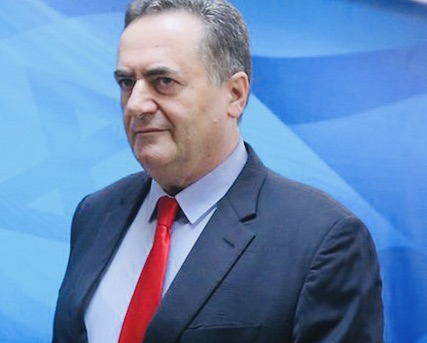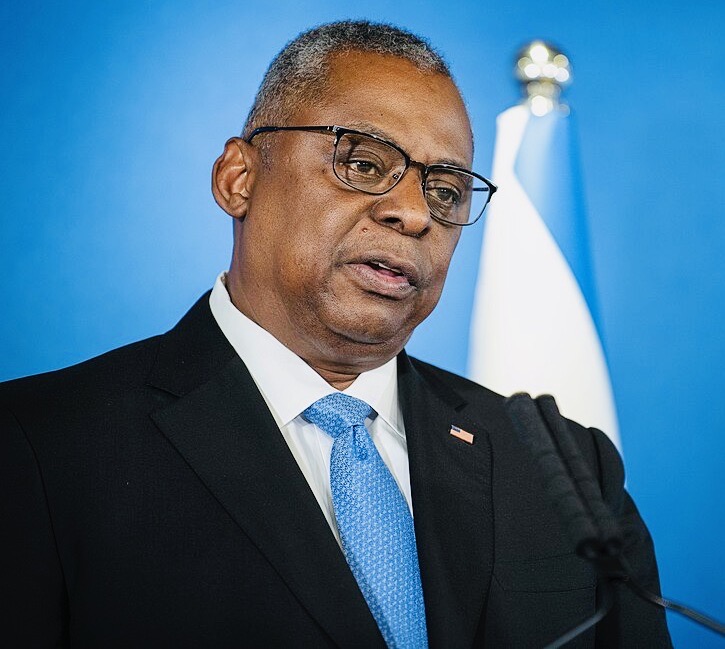Nearly six months into the Israel-Hamas war in the Gaza Strip, Israel’s strategic ties with the United States, its chief ally and benefactor, have come under increasing strain, while Prime Minister Benjamin Netanyahu’s relationship with President Joe Biden has been buffeted by strong turbulence.
These tensions have flared amid a pronounced shift in U.S. public opinion regarding Israeli military operations in Gaza. A recent Gallup poll shows that 55 percent of American adults disapprove of Israel’s tactics, a jump of 10 percentage points from last November.
Attitudes toward Israel are colored by political affiliations. While 71 percent of Republican Party supporters side with Israel, only 18 percent of Democrats are pro-Israel.
The widening rift between Biden’s Democratic administration and the Israeli government has been building for months, and was exacerbated by the U.S. decision on March 25 to abstain on a United Nations Security Council resolution, which was passed by a margin of 14-0.
Sponsored by Russia and China, it demanded an immediate ceasefire during the remaining weeks of the Muslim holiday Ramadan. In addition, it called for the “immediate and unconditional release of all hostages” and the lifting of “all barriers to the provision of humanitarian assistance” to the Palestinians of Gaza.
Israel was infuriated by the resolution, the first reason being that the United States did not veto it. Until last week, the Biden administration had used its United Nations veto power no less than three times to give Israel diplomatic cover.
Much to Israel’s disgust, the resolution failed to condemn Hamas, which ignited the war with its cross-border terrorist attack into southern Israel on October 7. This massacre claimed the lives of roughly 1,200 people, from Israeli civilians and soldiers to foreign farm workers, and resulted in the abduction of more than 250 hostages and the rape of countless women.
Israel was also disappointed that the resolution did not inextricably link the call for a truce with the release of the hostages in Hamas’ captivity, contrary to a U.S.-backed ceasefire resolution that was vetoed by Russia and China last week.
Infuriated by the U.S. abstention, Netanyahu ordered an Israeli delegation bound for the United States to remain in Israel until further notice, only to reverse himself a few days later. Describing the American abstention as a “clear departure” from U.S. policy since October, Netanyahu claimed that it harmed both Israel’s war effort and its quest to free the hostages.

Striking an even harder tone, Israel’s foreign minister, Israel Katz, defiantly said that Israel would not implement the resolution at present and would continue fighting until “we destroy Hamas” and every last hostage has come home.
By contrast, United Nations Secretary-General António Guterres said that the resolution “must be implemented” and that failure to do so would be “unforgivable.”
Regardless of whether it is implemented, Israel continues to operate in northern and southern Gaza. Its air force is pounding Hamas positions and its commandos are killing Hamas operatives at a steady clip and finding new tunnels and arms caches. Hamas, in turn, still launches attacks, notwithstanding Israeli “clearing” operations.
Since October, Israel has lost 254 soldiers in these battles.

Israel’s differences with the United States have been accentuated by the Israeli media, but White House national security spokesman John Kirby has suggested that Israel has overreacted. “It seems like the Prime Minister’s Office is choosing to create a perception of daylight where when they don’t need to do that,” he said, claiming that the resolution was non-binding and denying that the United States had altered its policy. “Nothing could be further from the truth,” said Kirby. “We still have Israel’s back … We are still providing tools and capabilities, weapons systems, so that Israel can defend itself.”
That the United States chose to allow the resolution to pass was surely a sign of its annoyance and frustration with Israel’s fierce and unrelenting conduct of its air and ground offensive. The Biden administration, however, still supports Israel’s main objectives — the destruction of Hamas and its removal as Gaza’s governing authority.
From a public relations viewpoint, the war has tarnished Israel’s image. Much of Gaza’s civilian infrastructure has been shattered, and more than 32,000 Palestinians have been killed, 13,000 of whom have been combatants. The optics of this devastation have worked in favor of the Palestinians, as per Hamas’ strategy.
The current humanitarian crisis in Gaza has also worked to Israel’s disadvantage. Israel has been accused of targeting hospitals, which Hamas has utilized as military bases, and restricting the flow of international aid into Gaza, which is a debatable point. Israel, too, faces the horrendous accusation that it has committed genocide in Gaza, a claim that has yet to be proven.
Biden himself has denounced Israel’s bombardment of Gaza as “indiscriminate” and “over the top,” while his key officials have urged Israel to limit itself to surgical strikes with minimal repercussions to civilians.
In talks with Israel, the Biden administration has demanded that more assistance must reach the Palestinians. “In Gaza today, the number of civilian casualties is far too high and the amount of humanitarian aid is far too low,” U.S. Secretary of Defence Lloyd Austin told Israeli Defence Minister Yoav Gallant during his visit to Washington earlier this week. “We need immediate increases and assistance to avert famine.”

In the meantime, U.S. aircraft have air-dropped food and water into Gaza. Several weeks ago, the Biden administration announced a plan to build a pier there to receive humanitarian supplies. Israeli troops will apparently provide security for the American soldiers who unload these goods.
The U.S. also opposes a planned Israeli operation in Rafah, where 1.5 million displaced Palestinians have sought shelter. Having already destroyed or disabled 18 Hamas battalions throughout Gaza, Israel is bent on invading Rafah, Hamas’ last urban bastion, and obliterating four of its still active battalions.
During his most recent trip to Israel on March 22, his sixth since October 7, U.S. Secretary off State Antony Blinken warned Netanyahu that an Israeli incursion into Rafah would be foolhardy. “It risks further isolating Israel around the world and jeopardizing its long-term security and standing,” he said.
Vice-President Kamala Harris, meanwhile, has warned Israel that there will be “consequences” should it invade Rafah.
Pushing back, Netanyahu declared, “We have no way to defeat Hamas without going into Rafah and eliminating the rest of (Hamas’) battalions there. I hope we will do it with the support of the U.S. But if we must, we will do it alone.”
Israel’s dispute with the United States sharpened when Senator Charles (Chuck) Schumer — the Majority Leader, the highest-ranking Jewish politician in American history, and one of Israel’s most ardent supporters — issued a stinging denunciation of Netanyahu earlier this month. Branding Netanyahu as an obstacle to peace, he called for fresh elections in Israel after the war subsides. In response, Netanyahu indignantly said, “That’s something that Israel, the Israeli public, does on its own. We’re not a banana republic.”
Biden and Netanyahu are also at odds over the role of the Palestinian Authority in Gaza and the prospect of a two-state solution.
The U.S. believes that a revamped and revitalized Palestinian Authority can rule Gaza and the West Bank, while Netanyahu rejects it as a governing force.
And unlike Netanyahu, Biden believes that a pathway to Palestinian statehood should be created. On March 28, he said, “There has to be a train to a two-state solution. It doesn’t have to occur today, but there has to be a progression, and I think we can do that.”
Netanyahu’s refusal to accommodate himself to the U.S. blueprint has angered Biden, who has called Netanyahu a “close, personal friend,” but who in private has apparently referred to him as an “asshole.”
In common with more than a few Israelis, Biden may well think that Netanyahu has a cynical interest in prolonging the war so as to avoid calling an election he would most probably lose, according to recent surveys.
With a presidential election looming in November, Biden is equally motivated by electoral considerations, though his aides stoutly deny it. Currently, he is trailing the former U.S. president, Donald Trump, in national polls and in key battleground states like Michigan, which Biden won in 2020. Home to 211,000 voters of Arab descent, comprising two percent of its population, Michigan has the highest concentration of Arab Americans in the country, especially in the town of Dearborn, where the motor company magnate Henry Ford once published an antisemitic newspaper.
Arab Americans are manifestly upset by Biden’s support for Israel, and have made their displeasure known. In the Democratic primary last month, more than 100,000 Michigan voters, or 13 percent, cast “uncommitted” ballots, most likely in protest over Biden’s approach to Israel. In Minnesota, almost 46,000 Democratic primary voters, or 19 percent, chose to vent their displeasure by voting “uncommitted” as well.
Although Biden is universally regarded as unabashedly pro-Israel, he bears grudges against Netanyahu, the longest-serving Israeli prime minister. But he is not the first president to harbor such feelings.
In 1996, following his first meeting with Netanyahu in the White House, Bill Clinton fumed: “Who the fuck does he think he is? Who’s the fucking superpower here?”
During an unguarded moment in 2011, French President Nicolas Sarkozy confessed he disliked Netanyahu and thought he was a liar. To which Barack Obama replied, “You’re tired of him — what about me? I have to deal with him every day.”
Nevertheless, the Biden administration’s commitment to Israel’s wellbeing and existence is rock solid.

The Washington Post reports that the U.S. has authorized the transfer of billions of dollars worth of munitions and aircraft to Israel in accordance with older contracts. The weapons package includes 25 F-35s fighter jets, 1,800 MK-84 2,000-pound bombs, and 500 MK-82 500-pound bombs.
This does not include the $3.8 billion in annual U.S. military assistance to Israel.

Israel’s president, Isaac Herzog, has accentuated the positive in describing Israel-U.S. relations. On March 28, he told a group of visiting Democratic lawmakers that Biden is “a great friend of Israel.” As he put it, “When we hosted him less than two years ago here, I could see his love and affection and emotion towards the people of Israel and the State of Israel.”
Gallant struck an identical tone during his recent visit to Washington. “I am here to emphasize the importance of … relations with the U.S.,” he said. We share 100 percent of the values and 99 percent of the interests with the United States.”

With Israel and the U.S. at loggerheads over a range of issues pertaining to the war, it remains to be seen whether Gallant’s optimism will be warranted in the immediate and near future.
